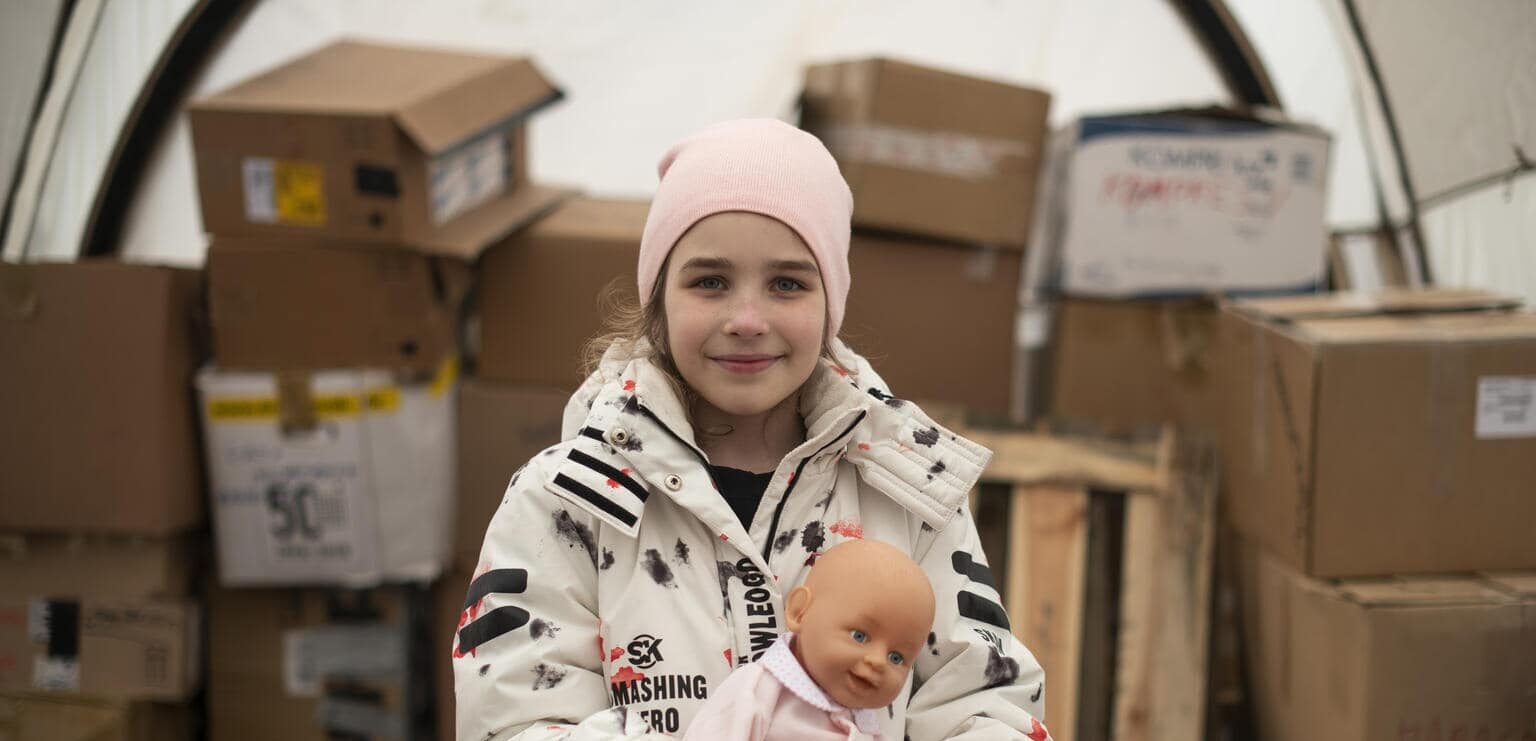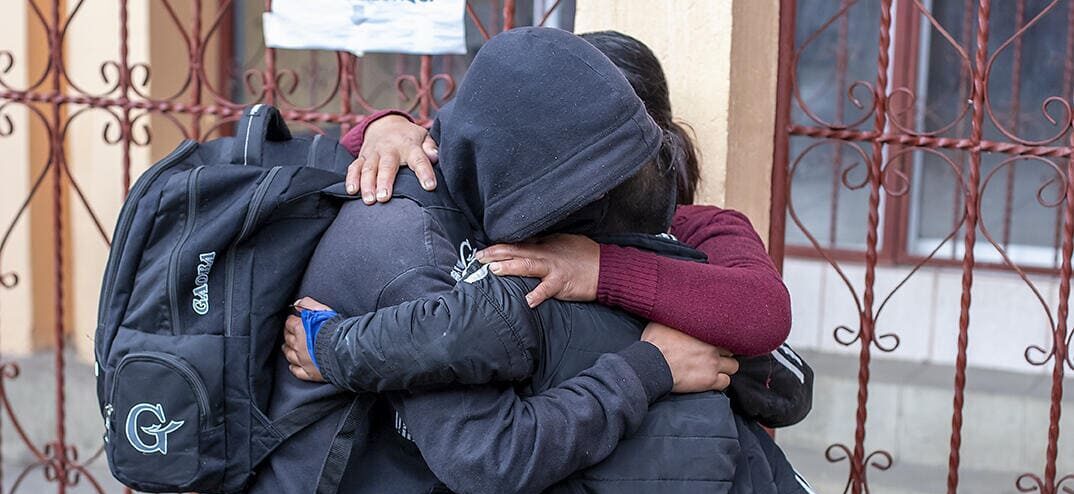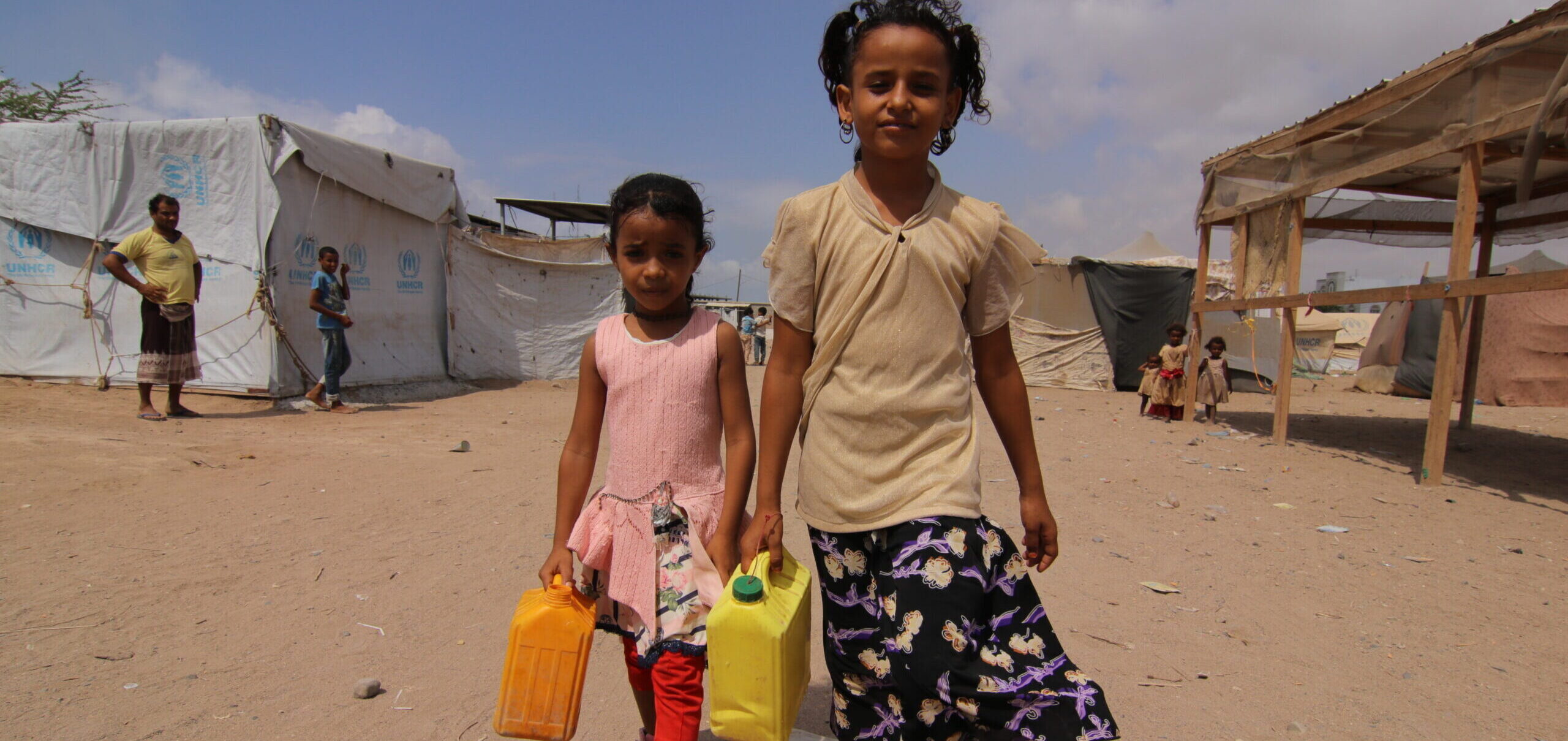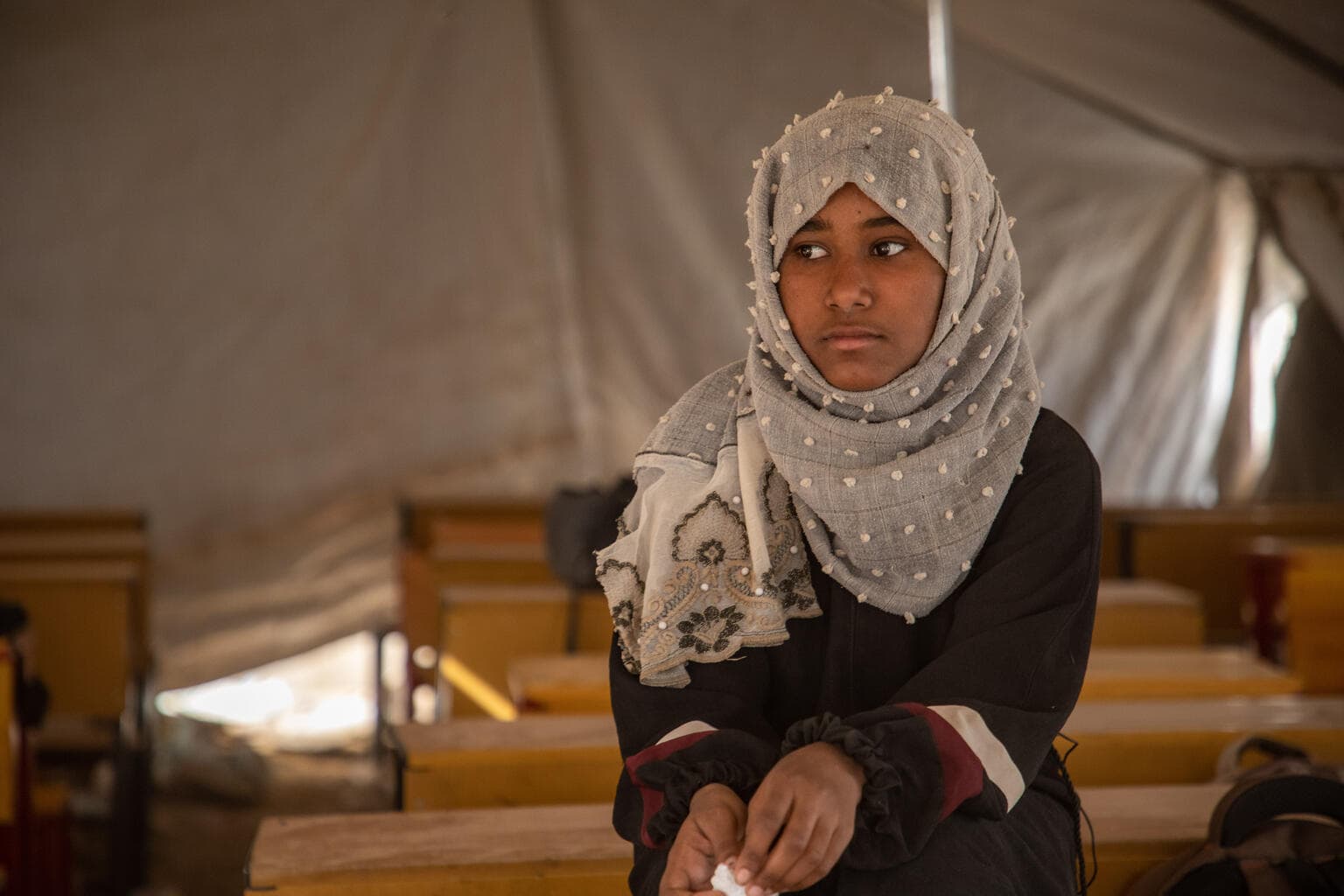International Data Alliance for Children on the Move (IDAC)
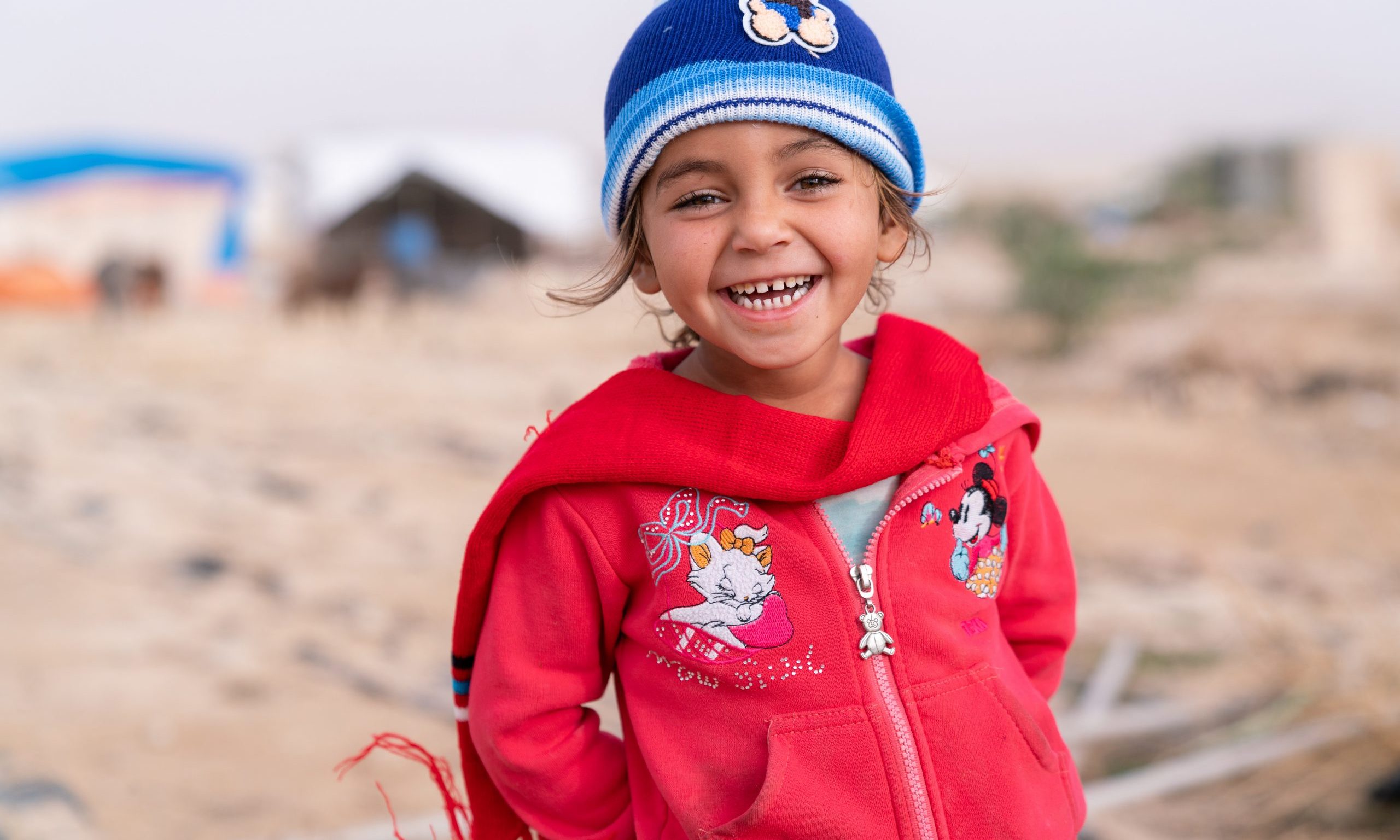

The International Data Alliance for Children on the Move (IDAC) is a cross-sectoral global coalition comprised of governments (including experts from national statistical offices and migration-relevant line ministries), international and regional organizations, NGOs, think tanks, academics, and civil society. The main objective of IDAC is to improve statistics and data on migrant and forcibly displaced children with the goal to support evidence-based policymaking that protects and empowers them.
IDAC was formally launched on 2 March 2020 at UNICEF House in New York at an event jointly organized by the Governments of the Netherlands and Sweden, and UNICEF, IOM, UNHCR and OECD.
Facts about children on the move
About IDAC
News, events and publications
Background
Reliable, timely and accessible data and evidence are essential for understanding how migration and forcible displacement affect children and their families and for putting in place policies and programs to meet their needs. Currently there is insufficient data about children on the move regarding their age and sex; about where they come from, where they are going, what were the reasons for leaving, whether they move with their families or alone, how they fare along the way, what their vulnerabilities are in their country of origin, during transit and in their destination. In many cases data are not regularly collected, shared or analysed, and data quality is often poor. These troubling gaps run counter to the central, transformative promise of the 2030 Agenda to leave no one behind.
The prevalence of these data gaps is alarming because evidence simultaneously suggests that children are more vulnerable than adults. Children’s vulnerability and related data demands are recognized by the international community in the Global Compact for Safe, Orderly and Regular Migration (GCM) and the Global Compact on Refugees (GCR) which include multiple references to child-sensitive mechanisms and child-specific indicators. To meet the data demands and better protect migrant and forcibly displaced children, it is paramount to improve child-specific data as well as the data capacities.
IDAC was conceived at an international expert workshop in March 2019 in Rabat, Morocco, hosted by the Government of Morocco. The workshop – jointly organized by IOM and UNICEF – was convened to discuss data needs and methodological challenges facing data collection, transmission, analysis, and storage in relation to statistics and research on migrant and forcibly displaced children in the context of the GCM and GCR as well as the 2030 Agenda for Sustainable Development.
Objectives
The main objective of IDAC is to improve statistics and data on migrant and forcibly displaced children to support evidence-based policymaking that protect and empower them. IDAC also aims to support the implementation of the commitments of the two Global Compacts on Migration and Refugees as well as the child migration relevant targets of the 2030 Agenda for Sustainable Development.
Scope of work and key tasks
IDAC recognizes that migration and displacement are dynamic issues and that it is not possible to conclusively define the work scope and tasks of the group but that they need to be flexible and adaptable to an evolving environment. The key tasks include mapping data gaps and data needs, identifying measurement challenges and providing solutions, strengthening data systems and capacities in countries and creating a space for countries, international and regional organizations, NGOs, think tanks, academics and civil society to share experiences and good practices.
IDAC has adopted a three-pronged Action Plan for 2021-2023 geared towards:
- Strengthening national data systems and capacities to protect migrant and forcibly displaced children, thru the provision of sustainable capacity building support;
- Promoting and establishing collaborative, innovative methods for child-specific data work, for example thru an annual conference, annual report, and working groups; and
- Improving data visibility, availability, accessibility and usability by developing a global database and dashboard on children on the move, as well as a dedicated online IDAC hub.
Membership
IDAC is meant to create a space for governments (including experts from national statistical offices and migration-relevant line ministries), international and regional organizations, NGOs, think tanks, academics and civil society to convene. There is no minimum period of membership nor is a membership rotation planned, and interested parties are encouraged to apply to join. IDAC may invite agencies, countries or individuals to ensure regional balance and to draw on further expertise, if needed. IDAC will coordinate closely with other relevant statistical forums such as the Expert Group on Refugee and Internally Displaced Persons Statistics (EGRIS).
If you or your organization or institution is interested in joining IDAC, please contact: IDAC@unicef.org
Key resources
- About IDAC
- Terms of reference
- Secretariat (UNICEF, IOM, UNHCR, OECD, Eurostat)
- A Call to Action: Protecting children on the move starts with better data
- International expert workshop “Children on the Move: Building Migration Data Capacities”, March 2019, Rabat, Morocco
- Newsletter, 2021: A Year in Review
- Newsletter, On the Move, In the Know, July 2022
- IDAC Publications
- Issue Brief #1. A Web of Insecurity: Gendered risks and vulnerabilities for children on the move during the COVID-19 pandemic, April 2021
- Data InSIGHT #1. Missing from the story: The urgent need for better data to protect children on the move, November 2021
- Transforming education for internally displaced children – data lead the way, January 2022
- Stronger Data, Brighter Futures: Protecting children on the move with data and evidence, May 2022
- IDAC Webinars
- Migrant and Displaced Children: Deep in the shadow of COVID-19 – A webinar on the impact of the pandemic on childhood migration, 10 May 2021 (English, French)
- Using data to ensure the safety and recovery of internally displaced and refugee Ukrainian children, April 2022
- Minding the data gap on children on the move in ESCAP countries, Asia-Pacific Café Series, May 2022
- Women and children in the context of migration, ASEAN Workshop, May 2022
- IDAC High Level Events
- Closing data gaps on children on the move: A shared responsibility, 15 November 2021 (English, French, Spanish)
- Better data to improve outcomes for children on the move, side event to the 53rd session of the United Nations Statistical Commission, February 2022
- Stronger Data, Brighter Futures: Protecting children on the move with data, side event at the first International Migration Review Forum (IMRF), May 2022
- IDAC and the Global Compacts:
- Global Compact for Safe, Orderly and Regular Migration (UN, IOM)
- Global Compact on Refugees (UN, UNHCR)
- Destination Unknown: A Guide – Children and the Global Compacts on Refugees and Migration. Understanding what’s in the compacts and how to engage with them
- Report of the UN Secretary-General: Global Compact for Safe, Orderly and Regular Migration
- Key data on migration and displacement
- Global Migration Data Portal (IOM)
- International migration (UN Population Division)
- Databases on migration and integration for OECD countries (OECD)
- Refugees, asylum seekers and stateless persons (UNHCR)
- Internally displaced persons (IDMC)
- Asylum-seekers and unaccompanied migrant children (EUROSTAT)
- Data Warehouse: migration (UNICEF)
- Mixed migration (Mixed Migration Centre)
- Key resources on child migration and displacement
- Children on the move (UNICEF)
- Child and young migrants (IOM)
- Migrant stock by age and sex (UN Population Division)
- Forcibly displaced and stateless persons (UNHCR)
- Mid-year Update on IDPs 2020 (IDMC)
- Number of IDPs by age at the end of 2019 (IDMC)
- Global Report on Internal Displacement (GRID) 2020 (IDMC)
- Global Report on Internal Displacement (GRID) 2021 (IDMC)
- Global Report on Internal Displacement (GRID) 2022 (IDMC)
- Global Trends on Forced Displacement 2021 (UNHCR)
- Asia Pacific Migration Data Report 2021 (IOM)
- COVID-19 and migration and displacement
- Relevant data resources on Ukraine
Structure
UNICEF, IOM, UNHCR, OECD and Eurostat form a joint Secretariat with rotating chair, assisted by an Advisory Board. In close consultation with the Advisory Board, the Secretariat proposes the programme of work for IDAC, organizes meetings and prepares and maintains records of discussions and agreements. The Advisory Board makes recommendations and provides critical support to the work of IDAC.
Secretariat:

Members:

Connect with us!
Help us close the data gaps on migrant and displaced children by joining the IDAC and / or sharing your knowledge and experiences to enrich the work of IDAC!
Please contact us: IDAC@unicef.org
Follow us on Twitter: @IdacM
